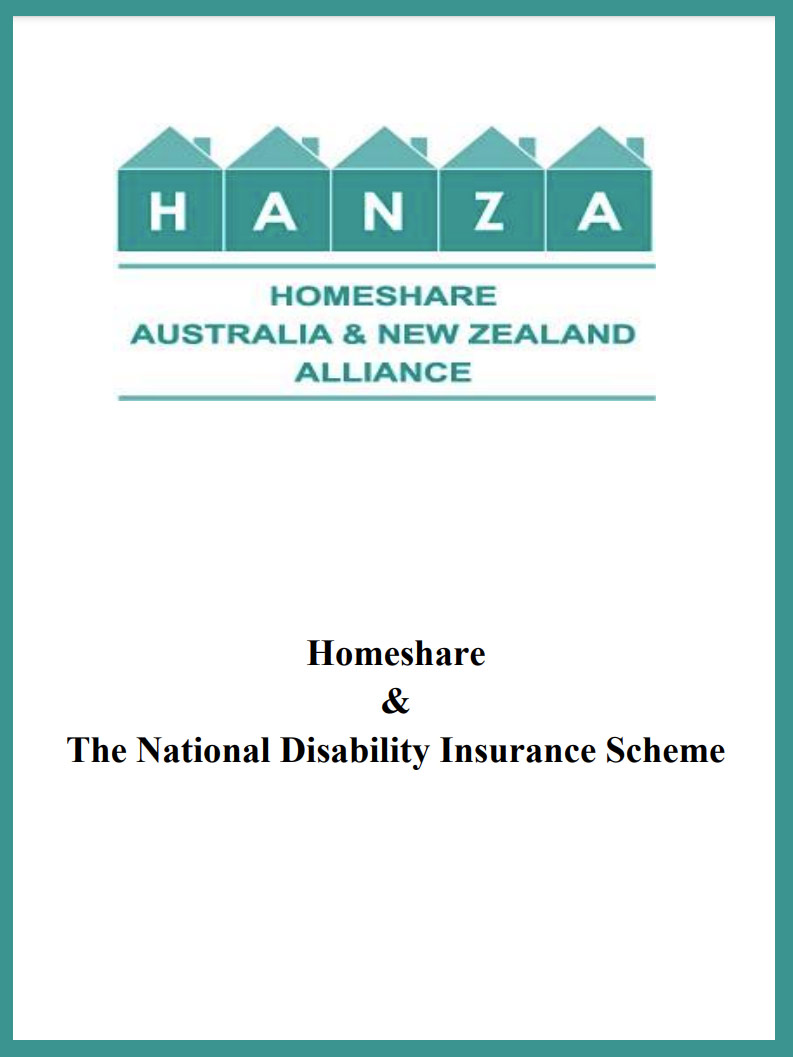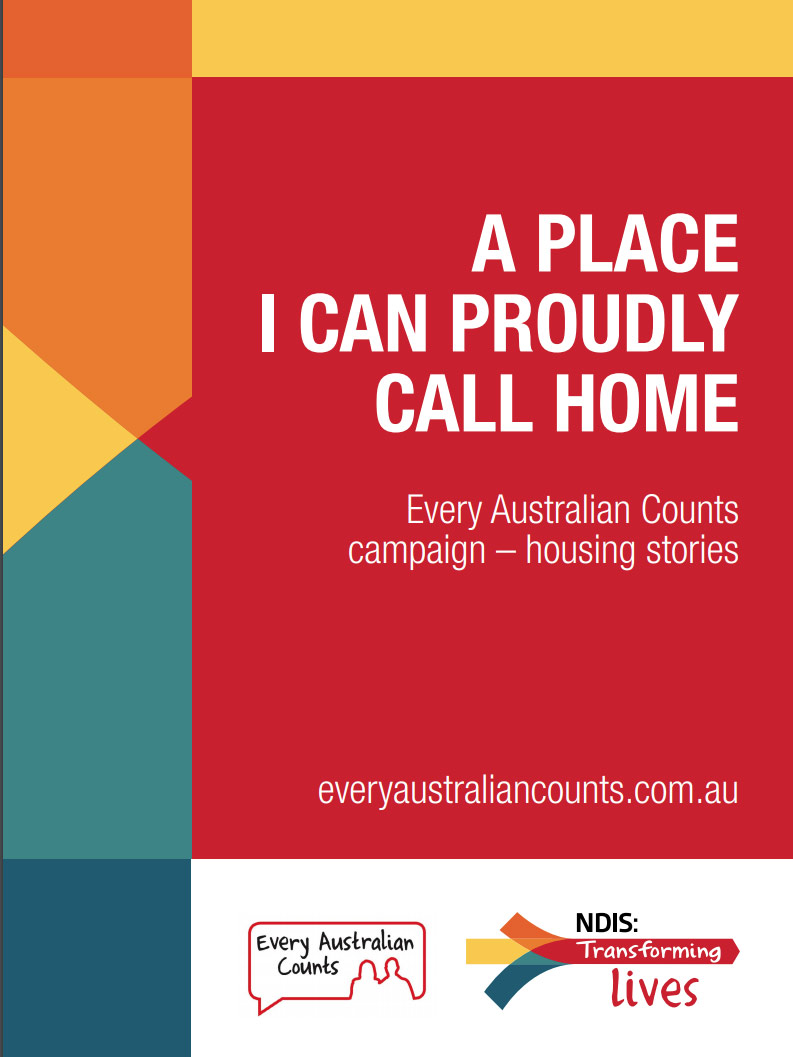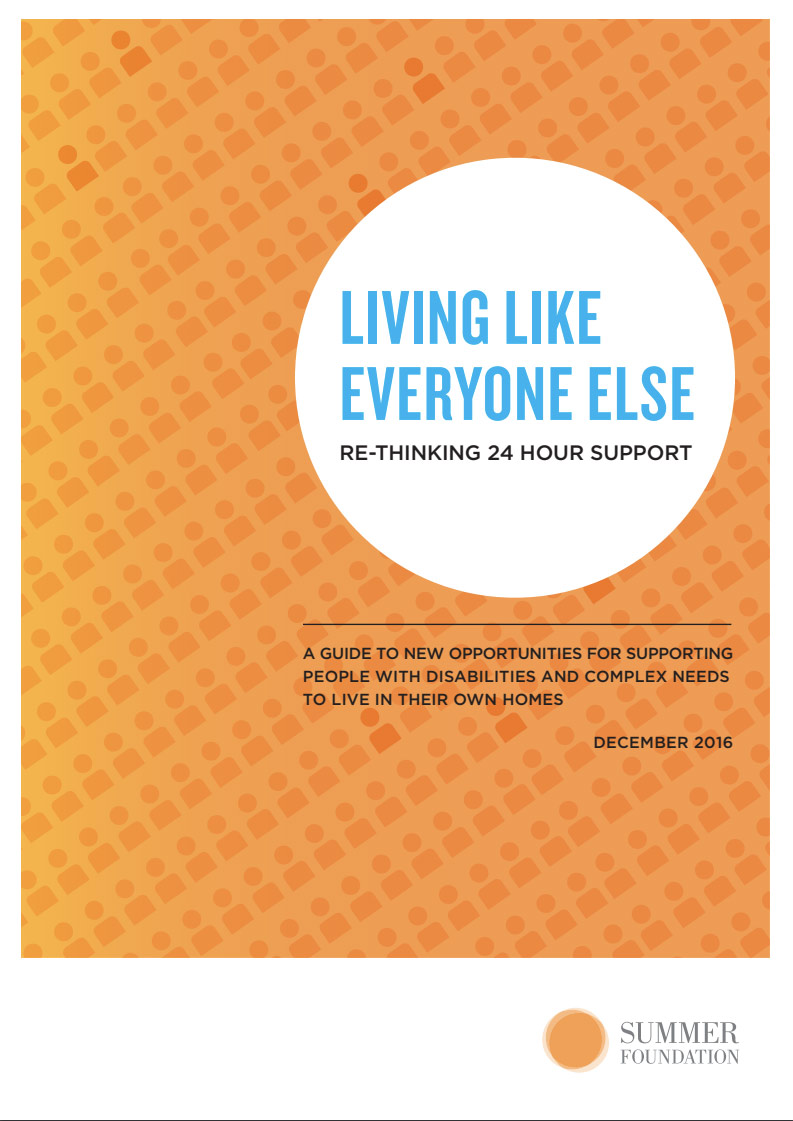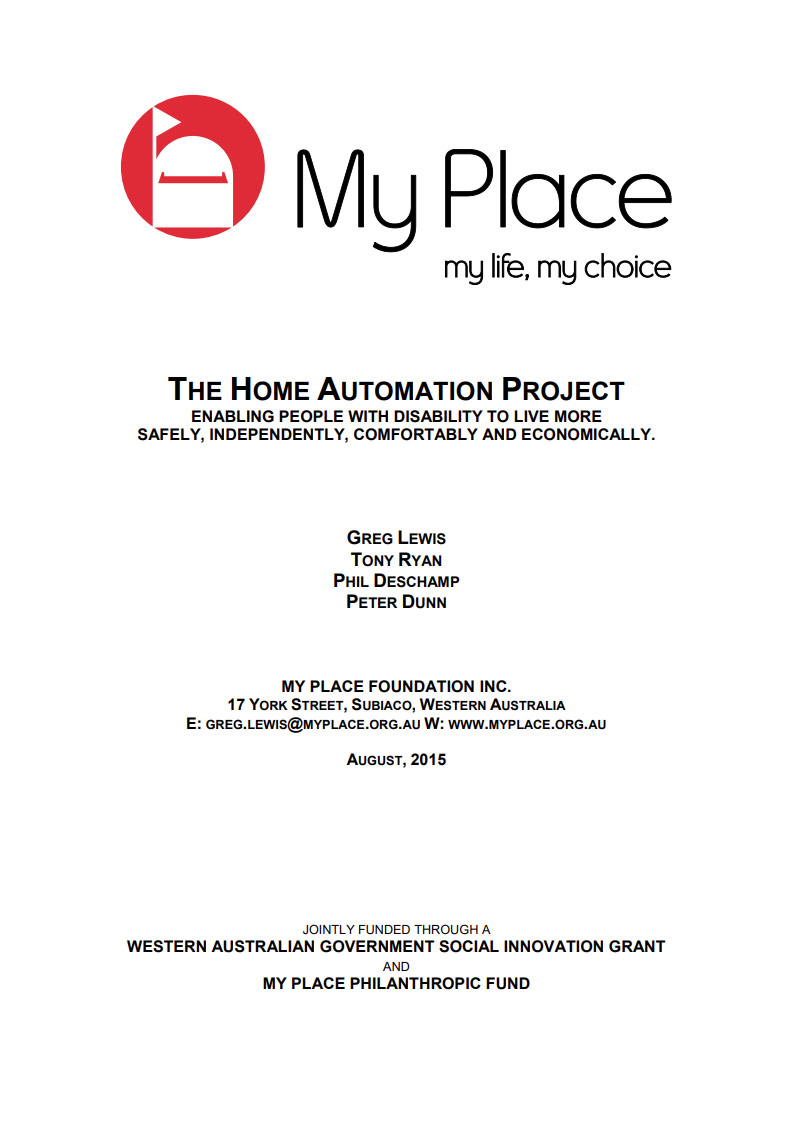Research
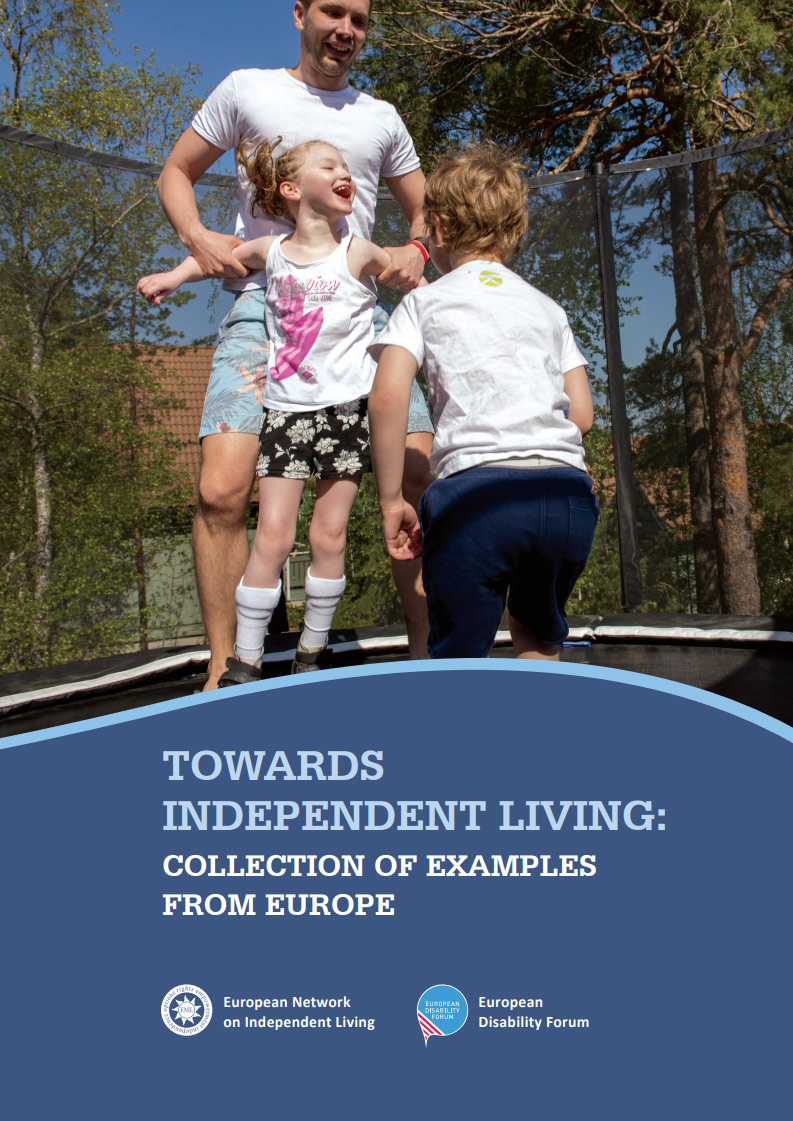
Good Practice – Towards Independent Living – A collection of Examples from Europe
This Collection is a joint initiative of the European Network on Independent Living (ENIL) and the European Disability Forum (EDF). It features examples from different EU Member States, which to a different extent facilitate the right to live independently in the community.
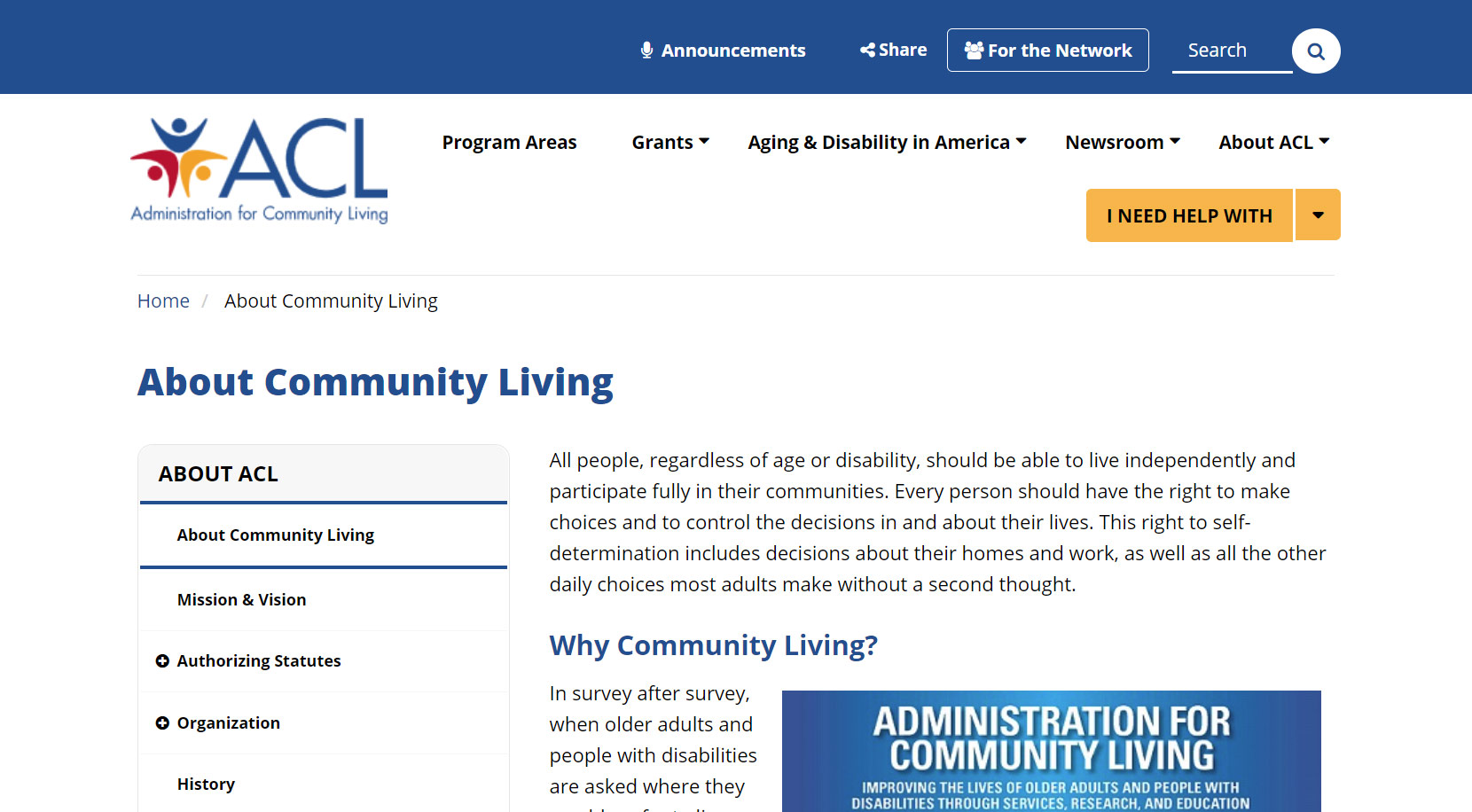
About Community Living
ACL’s creation was rooted in the fundamental idea that people with disabilities or functional limitations of any type, regardless of age, have a common interest in being able to access home and community-based supports and services. And further, that these supports make the difference in ensuring that they can fully participate in all aspects of society, including the option to live at home.
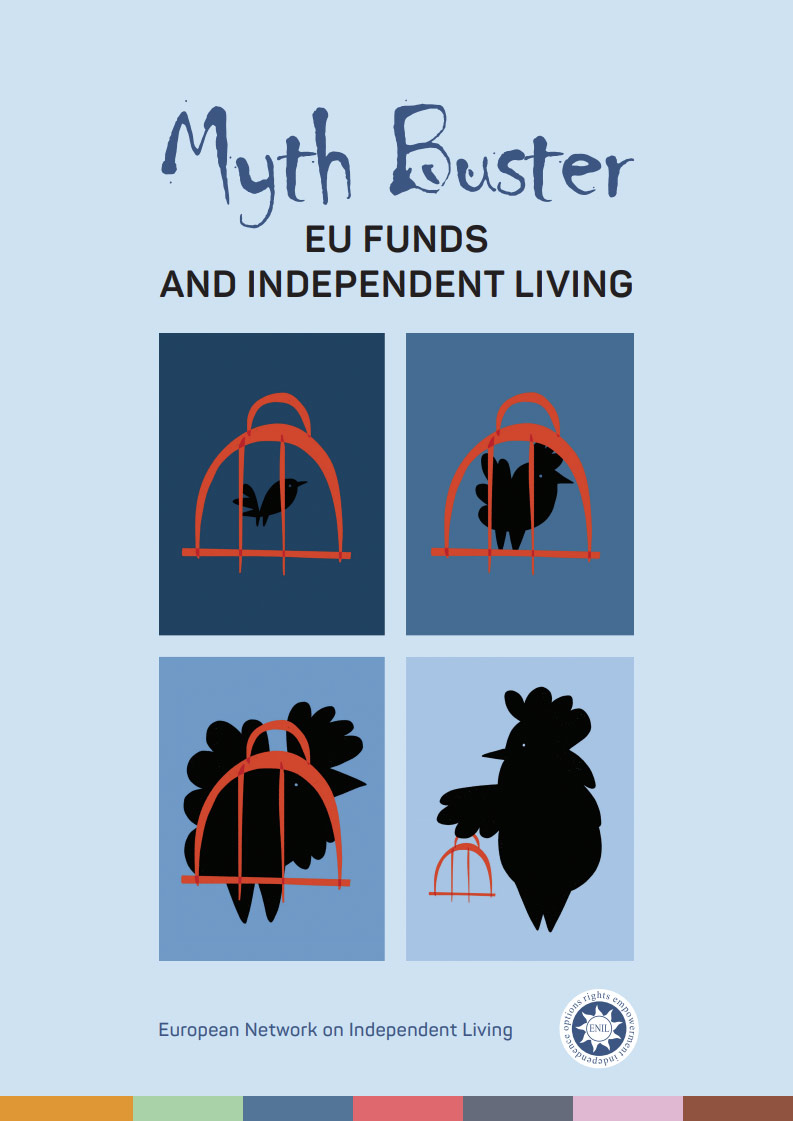
Myth Buster: EU Funds and Independent Living
This Myth buster is aimed at all those advocating for ESI Funds to be used to support the right to independent living, and for those involved in the programming, implementation and monitoring of these funds.
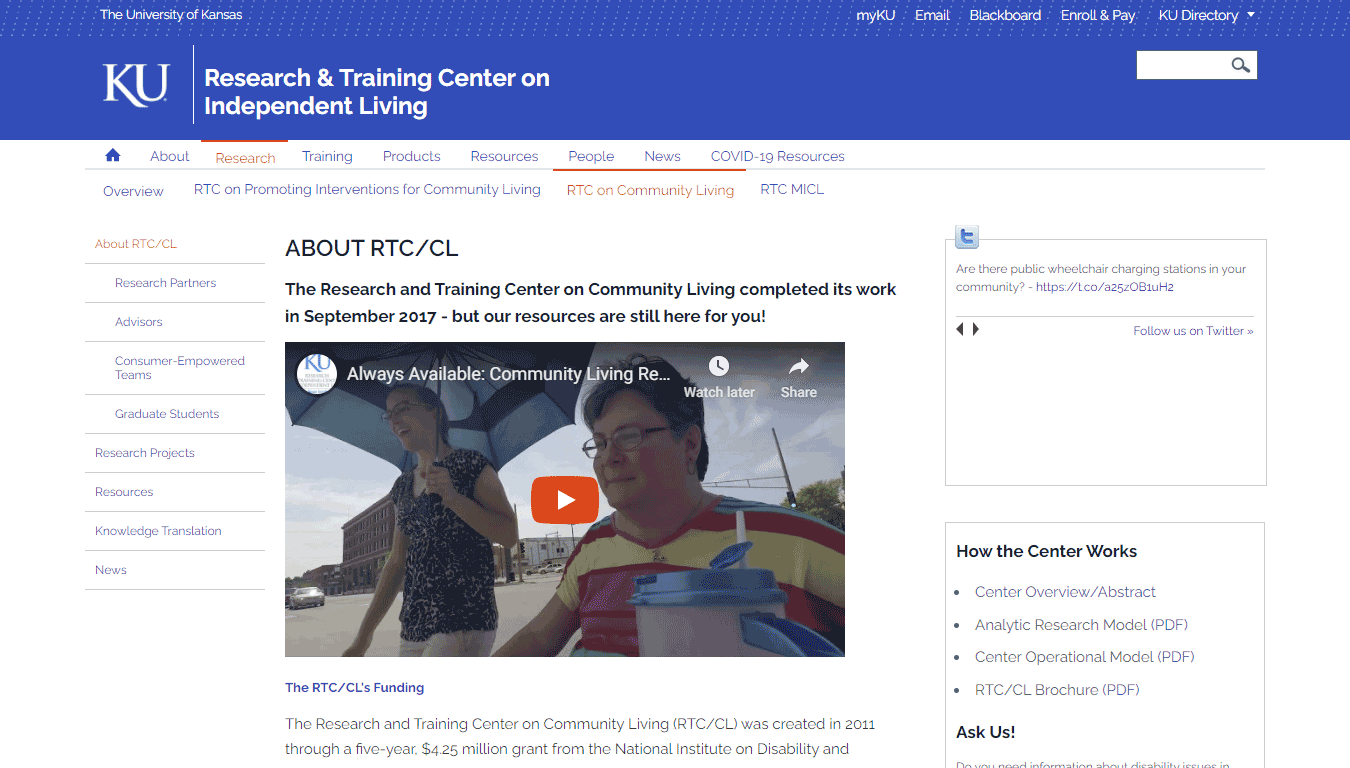
The Research and Training Center on Independent Living
The Research and Training Center on Independent Living is made up of a team committed to research that can be used to enhance Independent Living (IL) for people with disabilities.

Vulnerability in Adult Homesharing Situations for Persons with Disabilities
This papers central purpose is to highlight some of the more likely vulnerabilities that may be present for the people who find themselves resident in supported adult home sharing living situations.
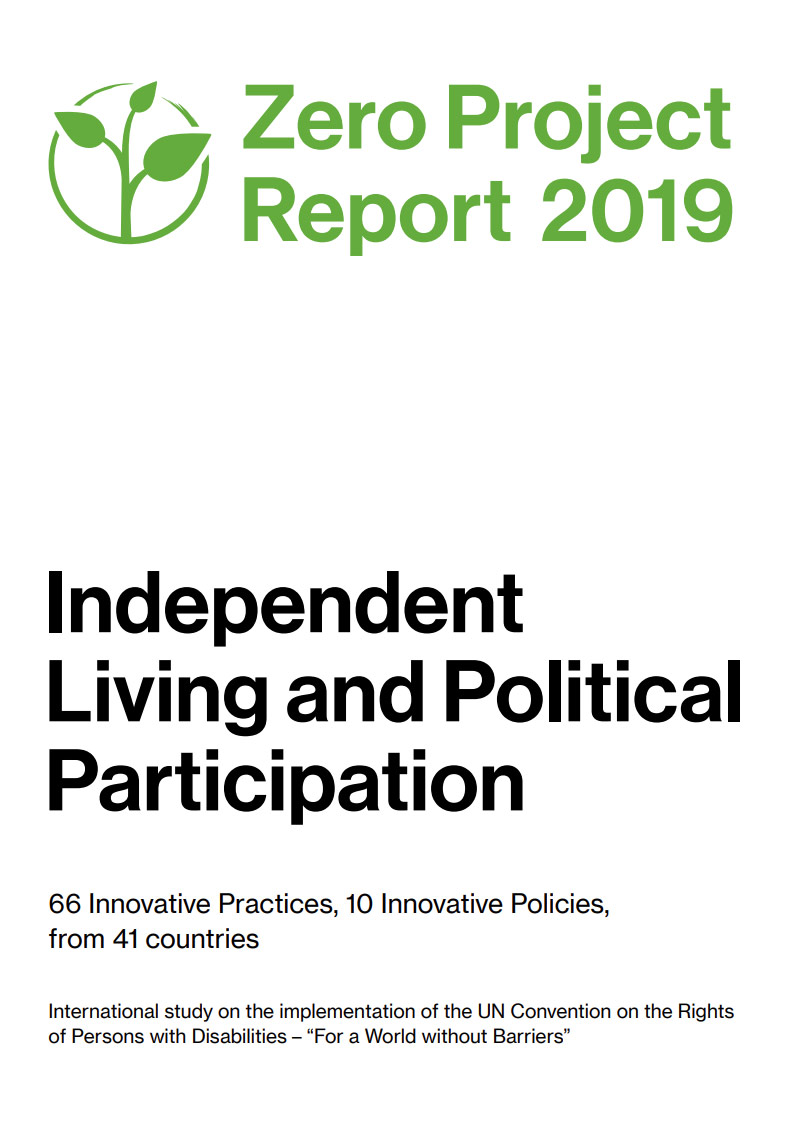
The Zero Project Report 2019 on Independent Living and Political Participation
66 Innovative Practices, 10 Innovative Policies, from 41 countries International study on the implementation of the UN Convention on the Rights of Persons with Disabilities – “For a World without Barriers”
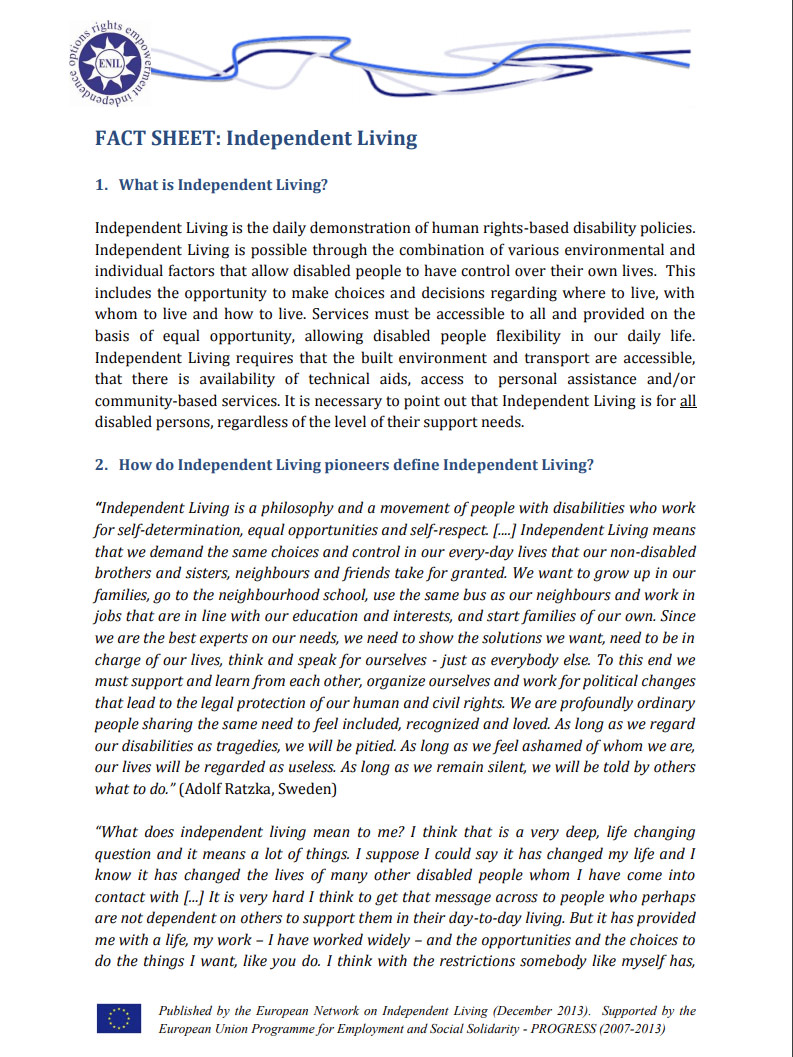
European Network on Independent Living
Independent Living is the daily demonstration of human rights-based disability policies. Independent Living is possible through the combination of various environmental and individual factors that allow disabled people to have control over their own lives. This includes the opportunity to make choices and decisions regarding where to live, with whom to live and how to live.
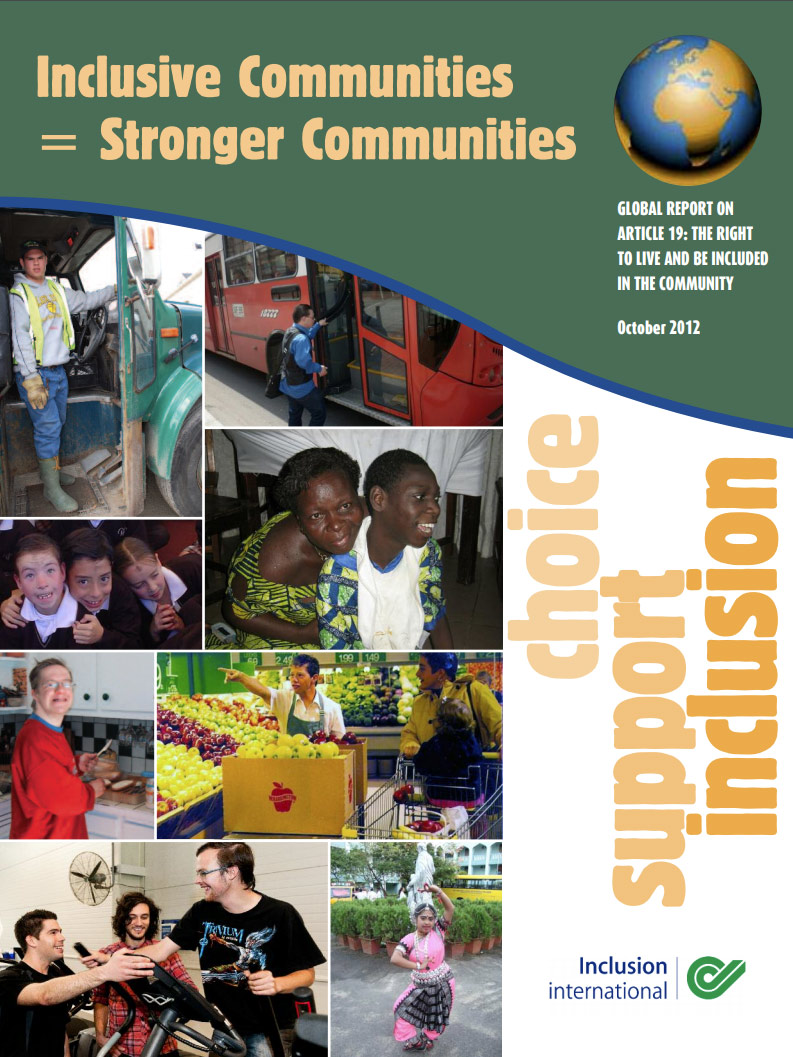
Inclusion International Global Report On Article 19 The Right To Live And Be Included In The Community
Global Report on Article 19: The right to Live and be included in the Community.
Barriers to Independent Living for Individuals with Disabilities and Seniors
Findings not only revealed a high degree of overlap between identified barriers and their importance ratings within groups but also showed clear differences in potential barriers across the groups assessed (individuals with disabilities and senior citizens).
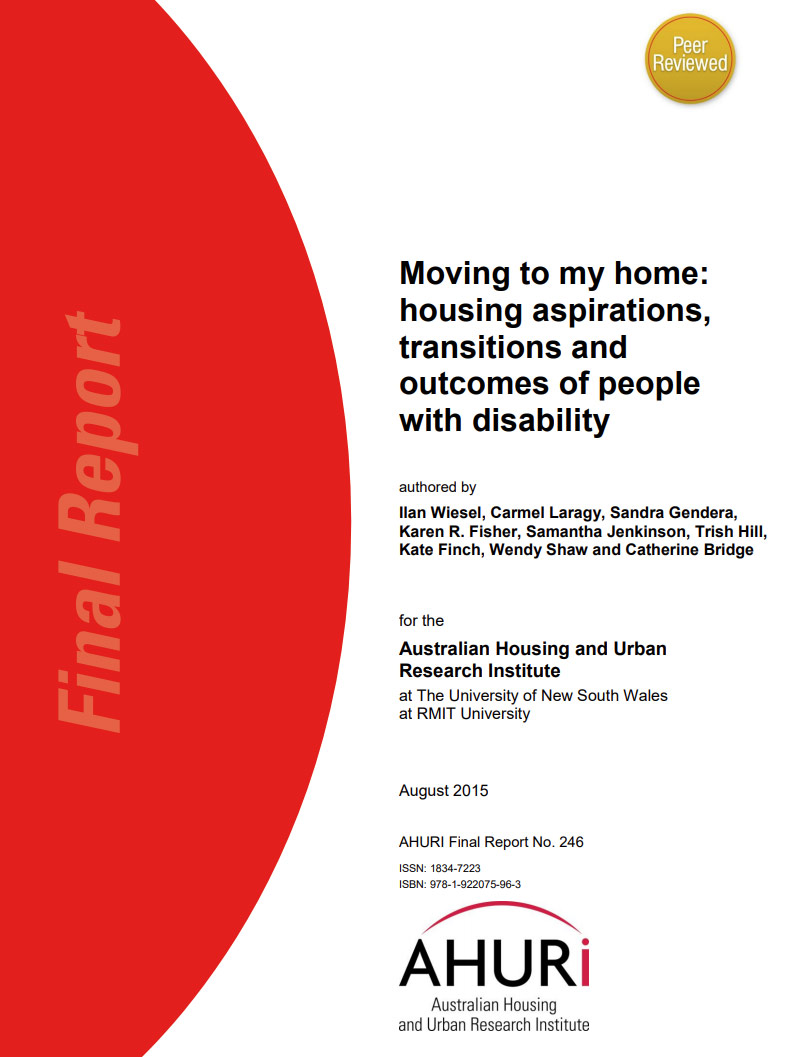
Moving to My Home: Housing aspirations, transitions and outcomes of people with disability
This study sought to identify the barriers and success factors that enable people with disability with individualised funding packages to move into housing which better suits their preferences and needs. The focus was on the aspirations and experiences of people with disability as consumers of housing.
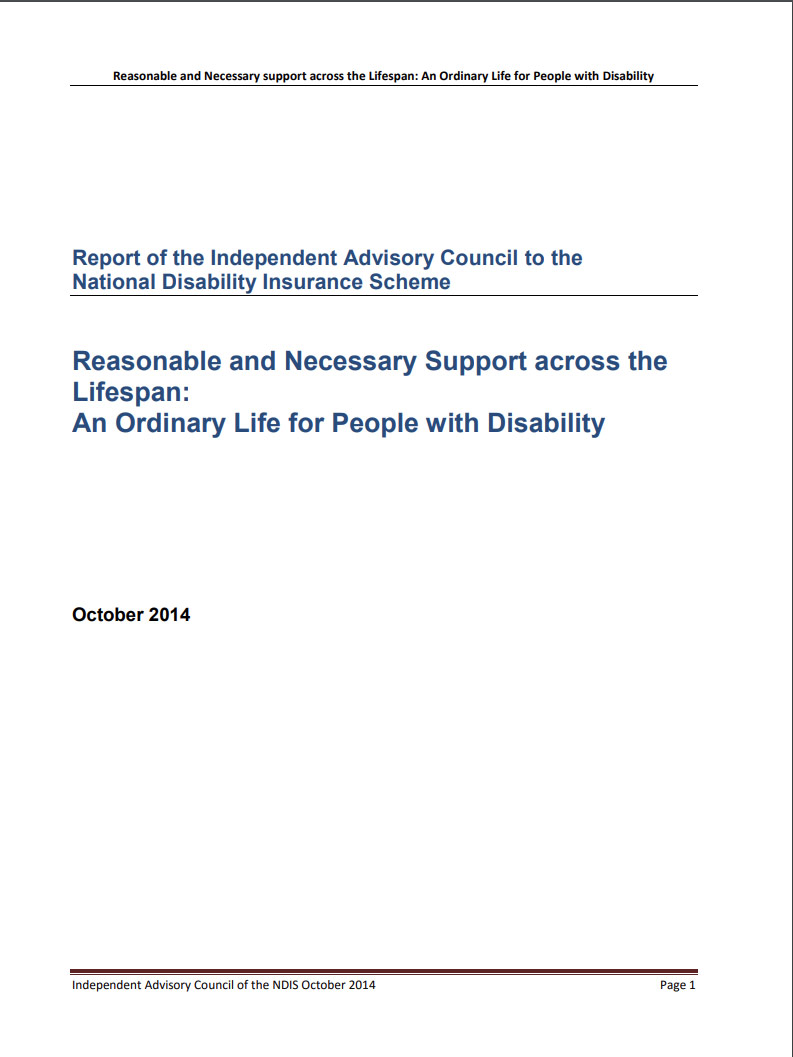
Reasonable and Necessary Support across the Lifespan: An Ordinary Life for People with Disability
The paper takes an ‘ordinary life’ in 21st century multicultural Australia as its starting point because people with disability share the ordinary aspirations of their peers without disability but need reasonable and necessary NDIS support to achieve them. The ordinary life provides clues as to how these aspirations would typically be met providing a useful benchmark to guide understanding of reasonable and necessary support.
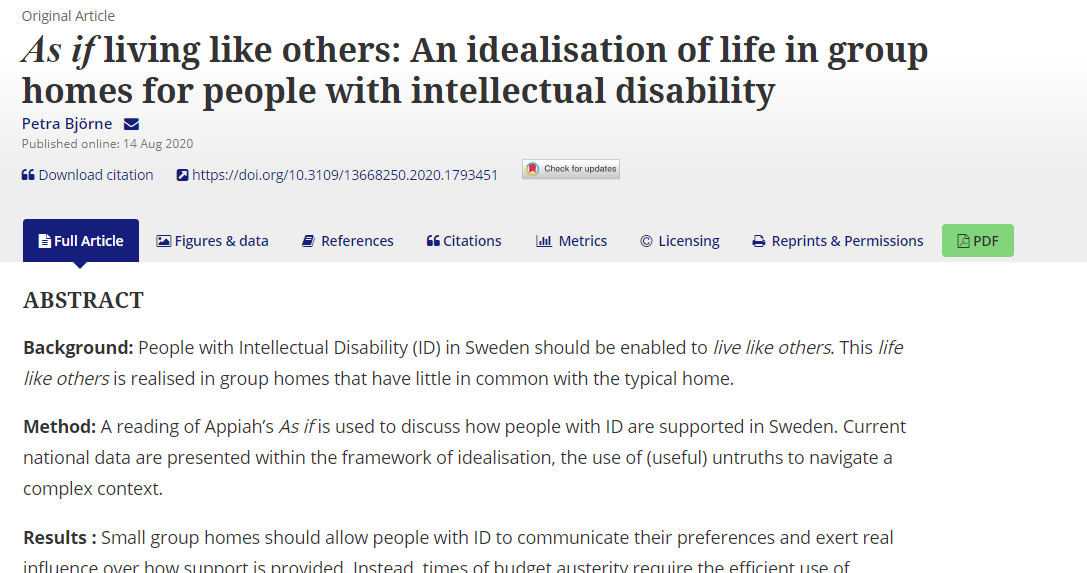
As If- Living Like Others- An Idealisation Of Life In Group Homes For People With Intellectual Disability
People with Intellectual Disability (ID) in Sweden should be enabled to live like others. This life like others is realised in group homes that have little in common with a typical place to call home.
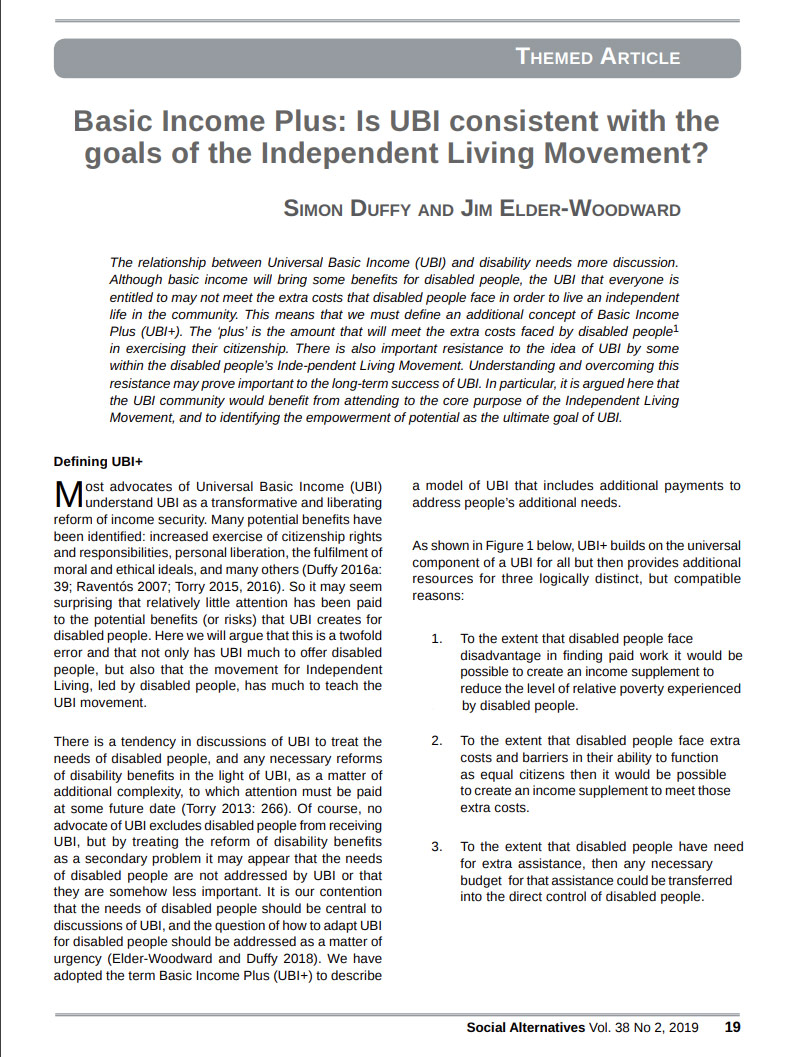
Basic Income Plus: Is UBI consistent with the goals of the Independent Living Movement?
UBI is a technical and political system for redistributing money directly to citizens. There are many good reasons to believe that such a system could have many positive impacts in terms of advancing human rights and reducing inequality.
NZ Choice In Community Living Cabinet Paper
This paper asks the Cabinet Social Policy Committee to note decisions taken by the Minister of Health and Associate Minister of Health (Hon Tariana Turia) to demonstrate “Choice in Community Living”, which is an alternative to residential services for people with disabilities.
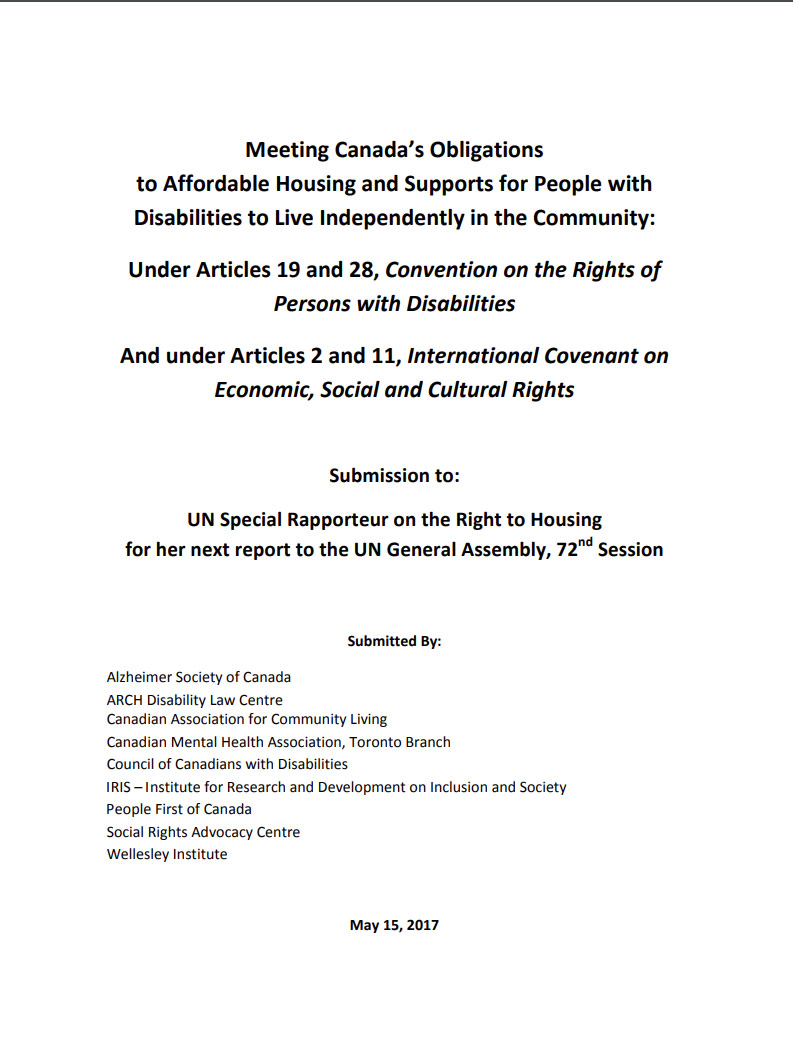
Meeting Canada’s Obligations to Affordable Housing and Supports for People with Disabilities to Live Independently in the Community: Under Articles 19 and 28
This submission is about the housing and supports gap facing persons with disabilities in Canada. It responds to the Special Rapporteur on adequate housing`s questionnaire and provides information for her report to the United Nations General Assembly 72nd session on the right to adequate housing of persons with disabilities.
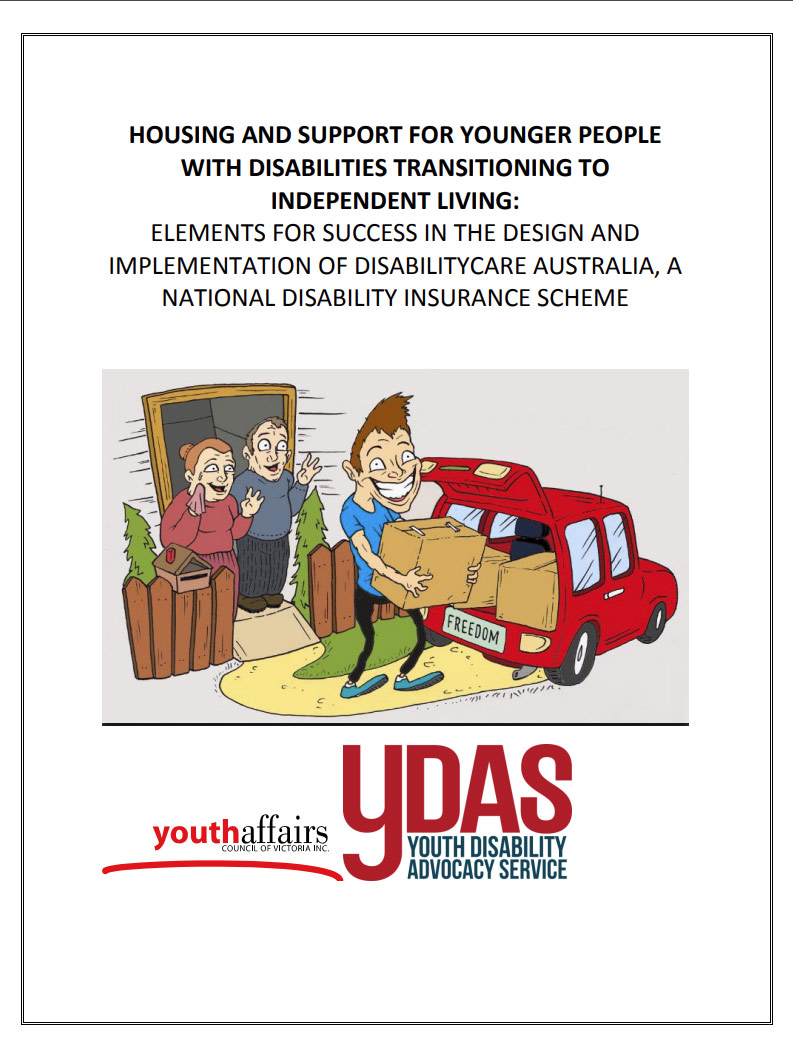
YDAS PDF Project Housing and Support for Younger People
This project provided an opportunity for the voice of younger people with disabilities to be heard in shaping policy and practice with respect to housing and support in a new disability funding paradigm, DisabilityCare Australia, a National Disability Insurance Scheme.
Getting a Life – Living Independently and Being Included in the Community
The purpose of this Study is to explore and set out the minimum conditions necessary to implement the UN Convention on the Rights of Persons with Disabilities, particularly the right to live independently and be included in the community.
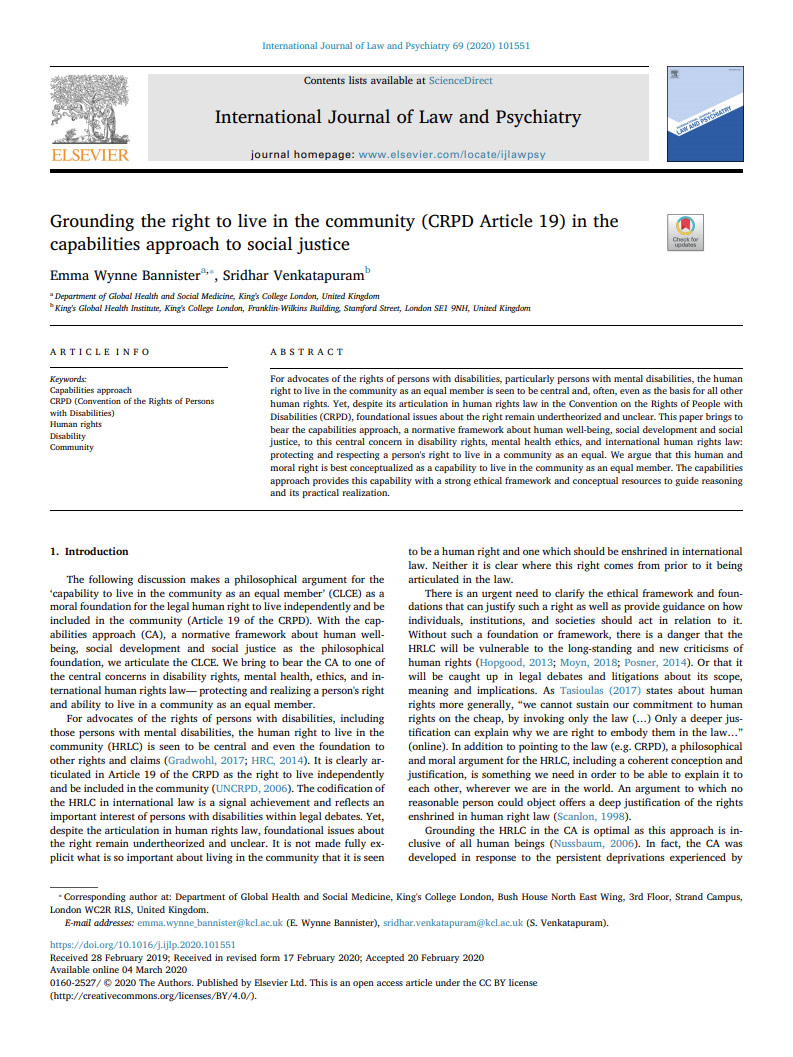
Grounding The Right To Live In The Community (CPRD Article 19) In The Capabilities Approach To Social Justice
This paper brings to bear the capabilities approach, a normative framework about human well-being, social development and social justice, to this central concern in disability rights, mental health ethics, and international human rights law.
Living in your own home with a disability – the experiences of people with disabilities of support from their community
The research report contains information gathered from interviews with 54 people with physical, sensory, intellectual and cognitive impairments aged between 19 and mid-60s living in six different parts of Ireland.
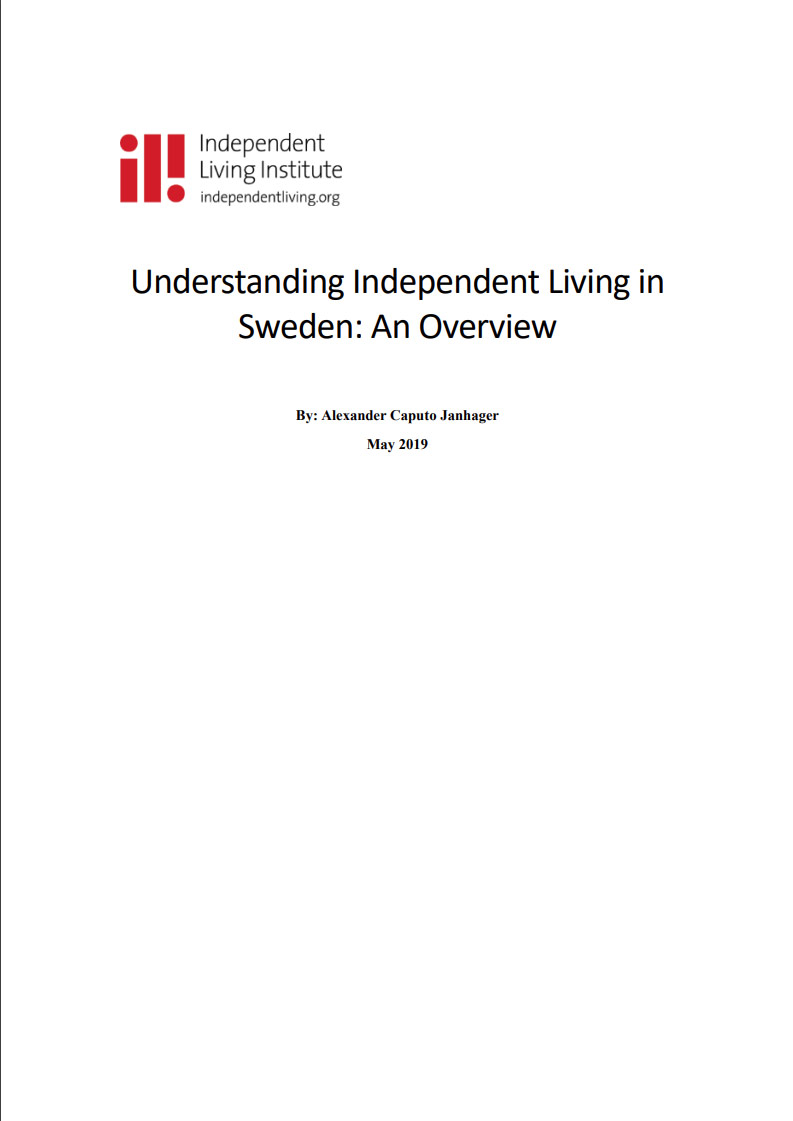
Understanding Independent Living In Sweden An Overview
The main purpose of this document is to provide a collection of information that will help to build a basic foundation of knowledge regarding the Independent Living Institute as an organization, the political and legal systems in Sweden, and the functions of overarching international institutions that influence the Independent Living Institute’s work.

My Shared Life: Measuring the Outcomes of Shared Lives
In 2014, Shared Lives Plus (the UK network for family-based and small-scale ways of supporting adults) commissioned PSSRU to develop an outcomes measuring tool so that there would be a consistent approach to gathering information across the sector.
Why Group Homes Are No Longer Optimal
In this brief commentary, Michael Kendrick argues that people with disabilities would not be well served in the limited life options available within group homes, particularly those gathered together in institutional sites.
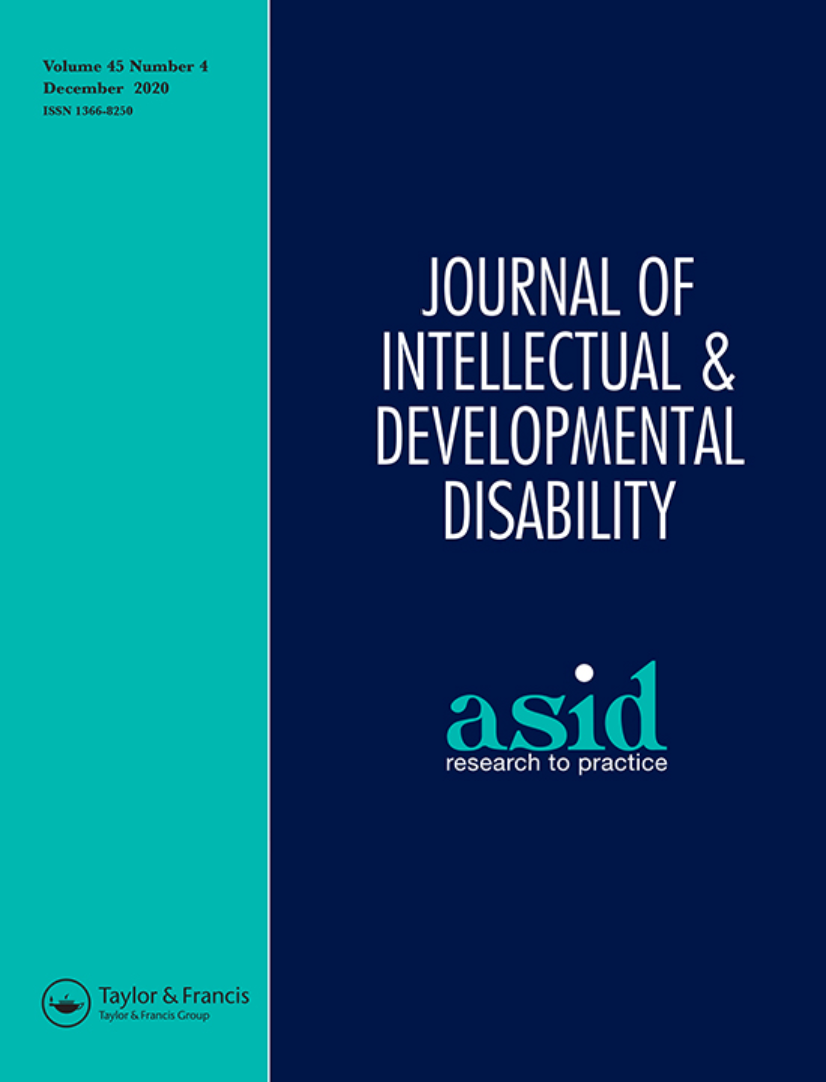
Conundrums of supported living: The experiences of people with intellectual disability
Dissatisfaction with the inflexibility of the group home model has led to the growth of supported living that separates housing from support and is thought to have greater potential for better quality of life outcomes. Comparative studies have had mixed findings with some showing few differences, other than greater choice in supported living. By investigating service user experiences of supported living this study aimed to identify how the potential of supported living might be better realised.
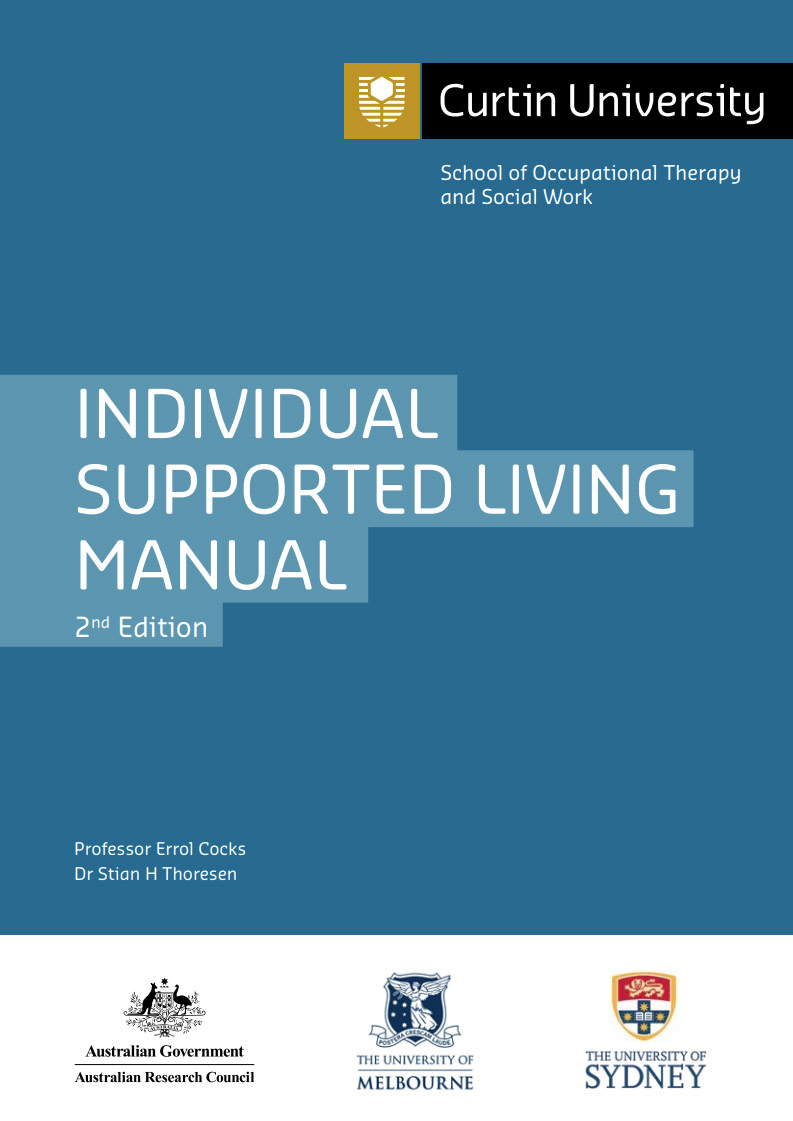
Curtin Individual Supported Living Manual 2nd Edition
The Manual builds on a Framework that was developed over two research projects carried
out between 2007 and 2011. This revised version was produced after the completion of a third
research project carried out over 2015-2017.

Adaptable Housing for People with Disability in Australia: A Scoping Study
The primary aim of the report is to consider the applicability and replicability of established design informed approaches for flexibility and adaptation that have been successfully employed in other contexts (such as the home office or housing for multi-generational families) to retrofitting housing for people with disability, which would also benefit the whole community. Such an approach goes beyond function and accessibility to consider the qualities that create a dignity-enabling home environment.

IAC Report Pathway to Innovative and Contemporary Options of Housing and Support
This paper is underpinned by the United Nations Convention of the Rights of Persons with Disabilities (UNCRPD) as outlined in the Objects of the NDIS Act. Article 19 of the UNCRPD – Living independently and being included in the community – outlines the most pertinent requirement in relation to housing and support; enabling NDIS participants the opportunity to choose where they live, with whom they live and have access to a range of in-home, residential and other services to support living and inclusion in the community.

Home is Where Our Story Begins
In 2017 Inclusion BC and Community Living BC came together over the shared issue of inclusive housing for people with developmental disabilities. Together they formed the Inclusive Housing Task Force made up of people with lived and professional experience with inclusive housing and drew upon the expertise of approximately 80 individuals from around the province through a Housing Forum held in January 2018.

Shared Lives 16+ Evaluation Report
This evaluation used a mixed–method approach. Interviews with young people, staff, carers and local authority stakeholders were utilised as an evaluation of process to understand the experiences of implementation and the arrangements. A break-even cost analysis was used to examine the costs associated with the programme and the potential cost savings.

Shared lives Plus: Shared Lives in Health
Shared Lives Plus (SLP) has commissioned Cordis Bright to conduct research in relation to the Scaling Shared Lives in Health Programme. This report explores the impact of the Scaling Shared Lives in Health Programme on the use of Shared Lives services to support individuals with a health need in England. Additionally, this report identifies four case study schemes where individuals with a health need have been supported through a Shared Lives arrangement. This report builds upon the evaluation of the implementation of the first phase of the Shared Lives in Health Programme, conducted by Cordis Bright, PPL, Innovation Unit and Social Finance in June 2019

“Living A Good Life” Quality of Life and Homeshare
Community Living British Columbia (CLBC) is committed to a vision of supporting people with intellectual disabilities to live “Good lives in Welcoming Communities”. Home Sharing is a residential option that strives to support that vision. In general, the findings of this exploratory study revealed that overwhelmingly self advocate, homes share provider, and family member participants agreed that the home sharing model was flexible, adaptive, and supported quality of life more effectively than group homes.

Young people in Australian residential aged care: evaluating trends from 2008 to 2018
The aim of this study was to evaluate trends in rates of young people entering and leaving residential aged care from 2008 to 2018.Many more young people are admitted to residential aged care each year than return to community living, with no sustained change between 2008 and 2018 at the national level. Age standardisation is crucial for evaluating systemic population-level change regarding younger people living in residential aged care.

The outcomes of individualised housing for people with disability and complex needs: a scoping review
Worldwide, disability systems are moving away from congregated living towards individualized models of housing. Individualized housing aims to provide choice regarding living arrangements and the option to live in houses in the community, just like people without disability. The purpose of this scoping review was to determine what is currently known about outcomes associated with individualized housing for adults with disability and complex needs.

Deinstitutionalisation Strategy in Greece
This document describes the main priorities of the national deinstitutionalisation strategy for Greece. The social care reforms which are referred to in the document are particularly aimed at promoting and developing sound legal and financial frameworks addressing specifically the needs of the following target groups: children, children with disabilities, adults with disabilities and elderly; however, the outcomes of a more comprehensive, inclusive social protection system will be beneficial to all persons that may have support needs throughout their lives.

Deinstitutionalisation and community living – outcomes and costs: report of a European Study
Volume 2 Main Report: The next section of the report describes briefly the methods used in each part of the project. The findings of the project are then presented in four sections. The first of these presents the results of Phase 1 and deals with the review of European and international data sources, the identification and collation of existing national data sources, their analysis and clarification of the adequacy and completeness of the data.

Deinstitutionalisation and community living – outcomes and costs: Report of a European Study.
Volume 1 Executive Summary: This project aimed to bring together the available information on the number of disabled people living in residential institutions in 28 European countries, and to identify successful strategies for replacing institutions with community-based services, paying particular attention to economic issues in the transition. It is the most wide-ranging study of its kind ever undertaken.

Who is Specialist Disability Accommodation for?
Although market and commercialised factors are important, we cannot be driven by these forces alone as we can lose sight of the actual person and the typical principles and practices of home. Home can become distorted with well-intended system efforts which can further marginalise people with a disability and foster notions of difference. For example, finding a home could become limited to finding a vacancy, an option to “fit” into, congregations of people who share the same diagnosis, a service setting, facility or residential service, a place to live or find shelter or a commercial activity driven by staffing concern, rules and regulations.
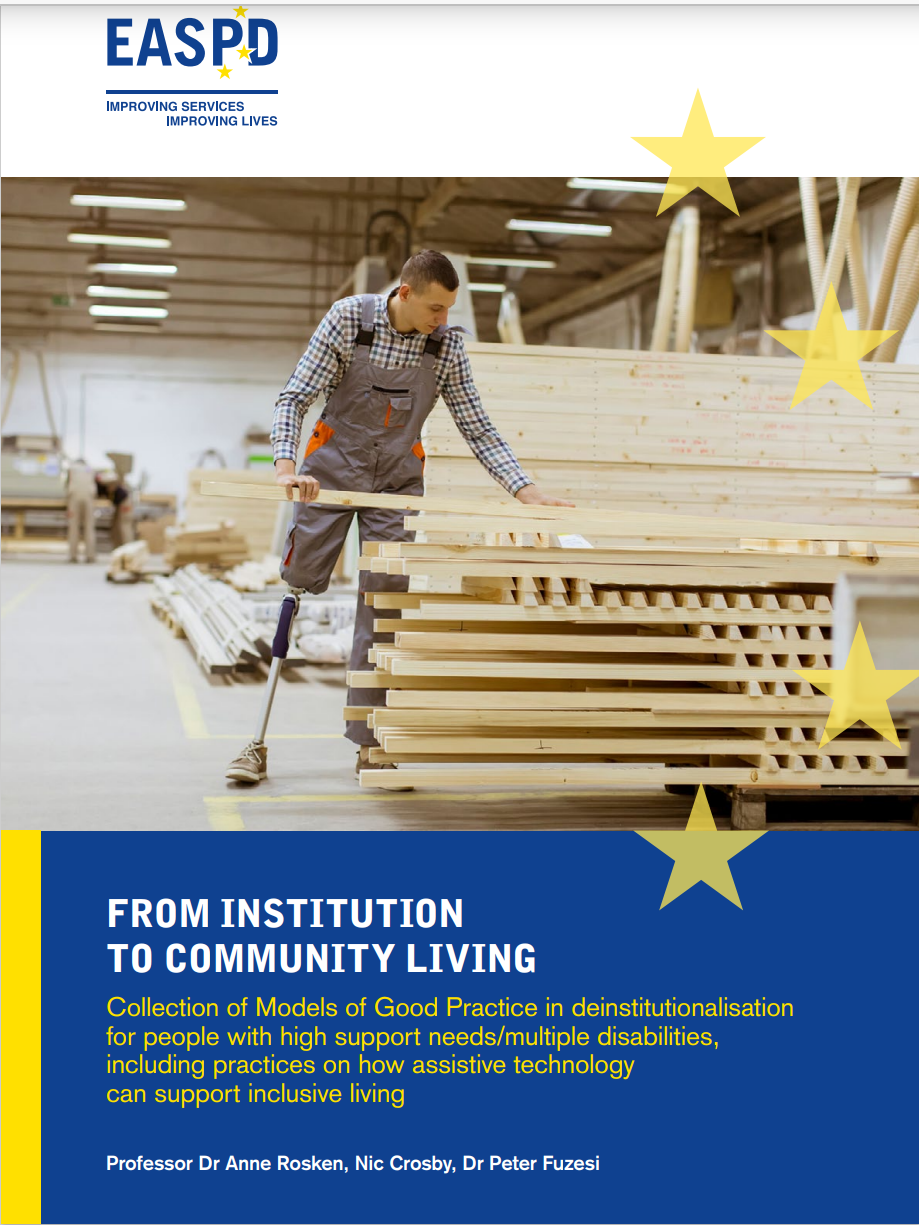
From Institution to Community Living
The work centres on identifying five case studies from across the European region where an institution for people with disabilities including those with high/complex support needs, has been completely closed. The case studies span almost fifty years of time and work; in the view of the project team this provides a useful timeline that identifies how each has learned from the experience of the previous work and built an ever stronger and evidence informed approach to complete closure.
From the radicals setting out to close the institution in Trieste, led by Franco Basaglia, to the detailed and strategic approach in Moldova, each case study provides a good sense of the work needed and what it takes to succeed in completely closing an institution for people with disabilities.

Deinstitutionalisation and community living outcomes and costs: Report of a European Study
These country reports form the third volume of the final report from the European Union Project Deinstitutionalisation and community living – outcomes and costs: report of a European Study. There are 28 country reports included. For the most part, the reports have been written by the researchers and in some cases the experts in each of the partner institutions, using a variety of sources, including government policy, web-based documents, statistical reports and academic papers.

The Outcomes of individualised housing for people with disability and complex needs
The purpose of this scoping review was to determine what is currently known about outcomes associated with individualised housing for adults with disability and complex needs. Worldwide, disability systems are moving away from congregated living towards individualised models of housing. Individualised housing aims to provide choice regarding living arrangements and the option to live in houses in the community, just like people without disability.
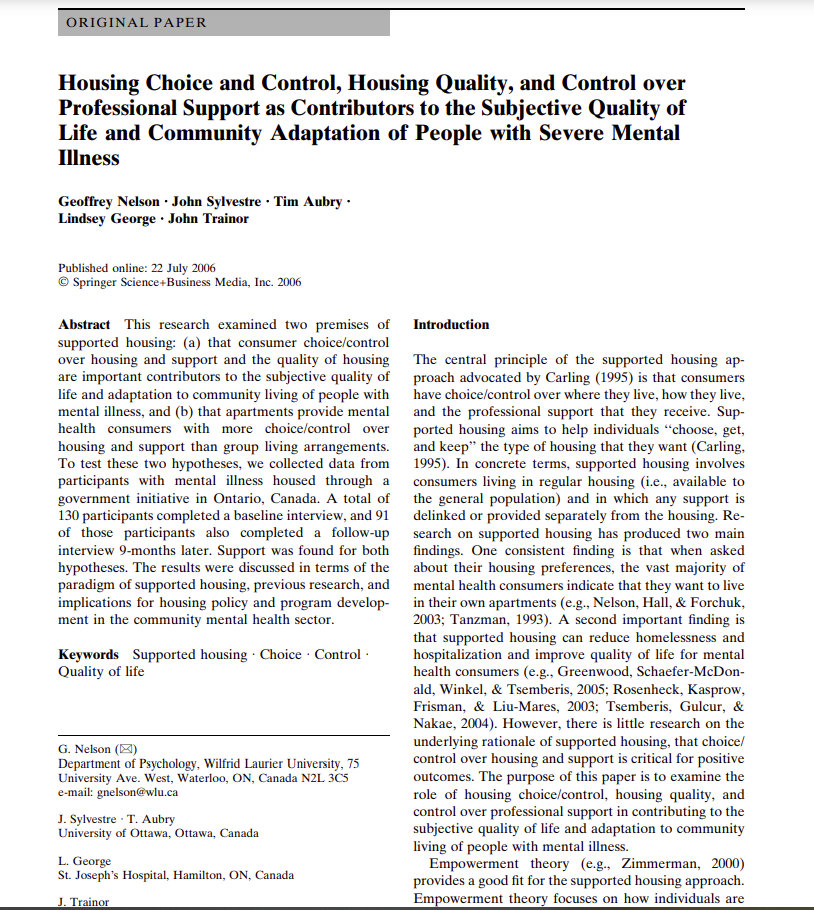
Housing Choice and Control
This research examined two premises of supported housing: (a) that consumer choice/control over housing and support and the quality of housing are important contributors to the subjective quality of life and adaptation to community living of people with mental illness, and (b) that apartments provide mental
health consumers with more choice/control over housing and support than group living arrangements.
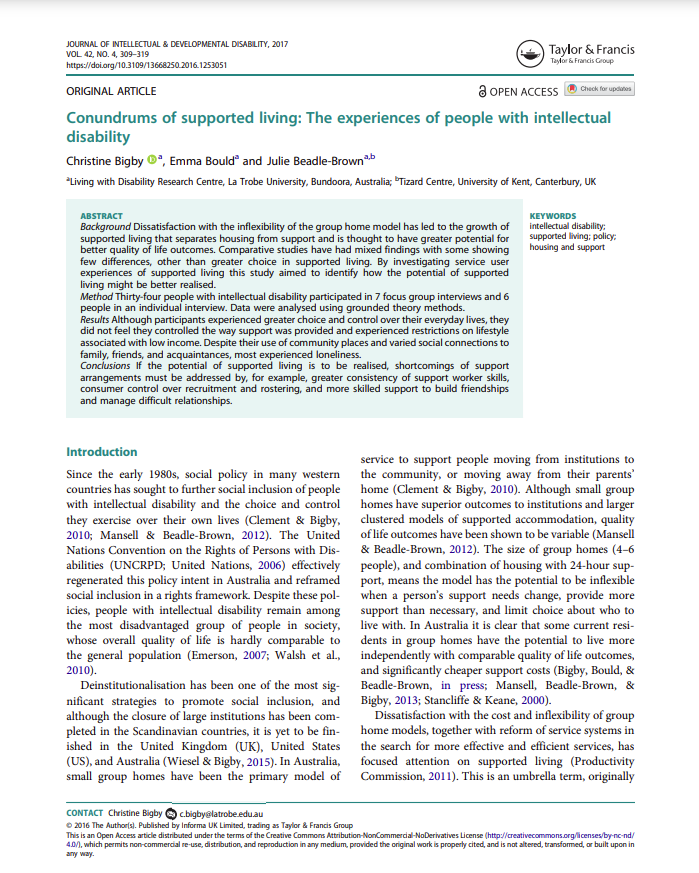
Conundrums of supported living: The experiences of people with intellectual disability
Dissatisfaction with the inflexibility of the group home model has led to the growth of supported living that separates housing from support and is thought to have greater potential for better quality of life outcomes. Comparative studies have had mixed findings with some showing few differences, other than greater choice in supported living. By investigating service user experiences of supported living this study aimed to identify how the potential of supported living might be better realised.

There’s No Place Like Home
The Arc conducted a national survey interviewing 726 people to understand how people make decisions about where they live and what they like about it. While more people with intellectual and developmental disabilities are living in the community than ever before, more work is necessary to ensure all people have options, choices, and opportunities. After all, there is no place like home.

The Future of Home
Just released, our Future of Home book brings to life what our future housing system could look like. It’s the culmination of over seven years of research by TACSI and other organisations just like us all over the world. Our hope is that this book stimulates the collective imagination of what could be, and how we might join up all the innovative work currently being conducted on the margins to build a better housing system.

Evaluation Of Homeshare Pilots
This report outlines key learnings, opportunities and challenges from the evaluation of the Homeshare pilots programme (HSP).The Homeshare pilots initiative brings together people who need support to stay in their homes (known as householders), with young people and others (known as homesharers), who provide companionship and ten hours per week of low level practical support in return for an affordable place to live.

From Institutions to Community Living for Persons with Disabilities: Perspectives From the Ground
This report aims to support ongoing efforts to bridge the gap between the promise of law and policy, and the reality on the ground. The exclusion and isolation stemming from institutionalisation of persons with disabilities has prompted a recognition of the need to ensure that people with disabilities can live in the community on an equal basis with others.

Warehoused- Inappropriate Institutionalization of Texas Foster Youth
Disability Rights Texas conducted an investigation to identify factors leading to the unnecessary, inappropriate and continued inpatient hospitalisation of foster youth. Initially admitted for 5 – 7 day emergency stays these children have remained in extended stays over many months after they were ready for discharge.

A Place to Call Our Own
This report outlines the results of research conducted through a collaborative initiative led by Riverdale Immigrant Women’s Centre, the Centre for Equality Rights in Accommodation and the Institute for Research and Development on Inclusion and Society, entitled: Toronto – A Place to Call Our Own: Empowering Women to Take Action for Affordable Housing. The initiative convened indigenous, refugee women and women with intellectual and psychosocial disabilities – including gender non-conforming people and trans women who identify as members of these populations – to identify and deepen the city of Toronto’s understanding of the diverse systemic barriers that result in these groups’ experiences of homelessness, unsafe housing and housing insecurity.

No Place Like Home: The Economics of Independent Living
Research indicates that, taken as a whole, the overall difference in cost between independent living and alterative ‘models of care’ are negligible. This paper argues that these new institutions are not necessarily cheaper options. Article 19 of the UN Convention on the Rights of Persons with Disabilities (CRPD) says that people with disabilities have the right to live independently in the community.

First and Last : Closing Learning Disabilities Hospitals
This book documents some of the progress we have made as the institutions were closed and as people returned to communities and were offered support and the possibility of control and dignity.

Federal Pre Budget Submission – A Place to Call Home
This pre-budget submission outlines a range of innovative ways that this housing crisis for people with disability can be solved now by the Federal Government. Many people with disability struggle to find a place to call home and there are a range of issues that make the housing market out of reach. The submission has been developed with input from the Summer Foundation, the Australian Network for Universal Design and National Shelter.

Small Supports: A Paper to Challenge and Inform Transforming Care Partnerships
This paper thinks about people with learning disabilities and /or autism who are living in secure settings (hospitals and ATUs). For some years a new informal group of support organisations has been evolving and are committed to supporting people with learning disabilities, mental health issues and autism. Often the people supported have experienced a string of placements in inappropriate, segregated, out of area, secure settings. Usually, these placements failed or broke down not because of the person but because the service was wrong

New Quasi-Institutions as Examples of Human Service Unconsciousness.
This peer reviewed article raises important considerations in regard to the dynamics of institutionalization, the history of human services, and the Social Role Valorisation (SRV) theme of unconsciousness.

Relocating people with intellectual disability to new accommodation and support settings: Contrasts between personalized arrangements and group home placements
This study provided a unique comparison of three accommodation and support options for persons with intellectual disability. From the information gathered – mostly from the people supported themselves – the new living arrangements seemed to produce better outcomes for them compared to the lives of their peers who continued to live in congregated settings. This confirms much of the international literature reviewed and people who moved to personalized arrangements generally seemed to fare better than those who moved to group homes.

From Institutions to Community Living
“Recognizing the right to live in the community is about enabling people to live their lives to their fullest within society. It is a foundational platform for all other rights: a precondition for anyone to enjoy all their human rights is that they are within and among the community.” This report is one of a series of three reports looking at different aspects of deinstitutionalisation and independent living for persons with disabilities.

Inquiry into Violence, Abuse and Neglect against People with Disability in Institutional and Residential Settings
This Submission from the Australian Cross Disability Alliance is the culmination of more than two decades of people with disability and their allies campaigning and advocating for a national, independent inquiry to investigate violence and abuse against people with disability in institutional and residential settings. One of the most pervasive human rights abuses experienced by people with disability is their segregation, isolation and confinement from the community in institutional and residential settings. The ACDA was founded by, and is made up of four national cross-disability DPOs: First Peoples Disability Network Australia (FPDNA); Women With Disabilities Australia (WWDA); National Ethnic Disability Alliance (NEDA); and People with Disability Australia (PWDA).

Convention on the Rights of Persons with Disabilities Research Report – Easy Read
This Easy Read report is a summary of a report called Convention on the Rights of Persons with Disabilities: Shining a light on Social Transformation.

Inclusion Australia: Submission to the NDIS Home and Living Consultation
The National Disability Insurance Agency (NDIA) released a consultation paper about their new approach to Home and Living, called ‘An Ordinary Life at Home’ in June 2021. Inclusion Australia’s submission in response to the paper includes feedback on the Home and Living Paper, recommendations for the NDIS Home and Living policy and case studies to help the NDIA better understand the lived experiences of people with disability and their supporters.

Consultation Paper: An Ordinary Life at Home
The National Disability Insurance Agency is developing a Home and Living Policy that supports you to make your own decisions about where, how and who you live with. Consultation sessions were held during a 12-week consultation period between 21 June and 10 September 2021. This report provides a summary of the feedback received from people with a disability, families, carers, disability representative organisations, service providers, government departments, academics and health professionals.

Home and Living Options for People with Disabilities
The aim of this review by the Centre for Disability Studies – University of Sydney, was to understand the interventions and strategies that are being used to help people transition out of institutional care into more individualised home and living options.

19 Stories of Social Inclusion
What experiences of social inclusion do people with intellectual disabilities have in Ireland? While this research aims to demonstrate positive stories of social inclusion, it is worth bearing in mind that those people with intellectual disabilities who are living fully or partly socially included lives, are often doing so in spite of continued social exclusion and the prevalence of multiple barriers to inclusion in society. Participants expressed that social inclusion gave them a sense of belonging and contributing and placed great value on having choice and control in their lives. The report and stories demonstrate what successful implementation of Article 19 of the UNCRPD looks like. Included in the recommendations is a whole of government approach, so that people with disabilities can access housing and the supports required to live independently.

Crystallising the Case for Deinstitutionalisation
This Report is about home. It is as simple and as powerful as that. Home is where we form our sense of self, the very stuff of our identity. We do so in close association with others. Home is also the material expression of self – a sort of scaffolding that holds us together. In our homes we see ourselves reflected back even in the small things like a flower vase or a family picture. It is quintessentially private. And home is exactly what is denied to large segments of the population.

An Illusion of Care
Vulnerability due to the increasing care needs of people who are ageing and/or who experience disabilities often triggers a search for ways and means of ensuring that those care needs can be provided for. That search often brings people to a startling reality in Ontario. There is a precious little support available other than placement in a long-term care facility. Ageing at home with support to do so is woefully unavailable for most people, despite this being a clear preference of many.

Our Housing Rights
On July 7th,2021 Inclusion Ireland and the Independent Living Movement Ireland (ILMI) held six focus groups on the issue of housing as this is the greatest issue for the members of both organisations at present. This report is a reflection of their experiences at an individual level and also at a systemic level of trying to gain access to housing and the supports to live in a home of their own.

Historical Timeline
People with disabilities have struggled for acceptance and equality for centuries now. They have been discriminated against, mistreated, misunderstood, oppressed, persecuted and sometimes killed due to prejudice, intolerance and indifference. This timeline lists some of the long struggle for equality in Canada while highlighting some of the victories.

Comparative Analysis on the Implementation of Article 19 of United Nation Convention on the Rights of People with Disabilities in Eight European Countries
This study gives an overview of the experiences of eight different European countries with the transition from institutional to community care for vulnerable people, highlighting good practices and possible pitfalls.

Deinstitutionalisation and Life in the Community in Bulgaria: A Three-Dimensional Illusion
One of the main conclusions that can be drawn from the lead author’s ten years of experience and the field research conducted for this report is that two
central characteristics remain unchanged within smaller group homes as compared with the old system and large-scale institutions. First is the continuing existence of an
institutional culture based on control of the residents and restrictions imposed by personnel. Second is the complete denial of personal choice for those placed in these new services when it comes to deciding on matters concerning them, nullifying any real chance for residents therein to exercise their autonomy and
independence.

Segregation, Congregation and the Gaining of a Real Home
This article critiques the limits of group homes and suggests that with creativity and focus on what is ordinary and valued, we can start to build ordinary lives for people who will otherwise continue to exist in a lonely and unstimulating environment.

Institutionalisation, Disability and Ageing in the Czech Republic
International human rights law obliges European Union (EU) nations to adopt all appropriate measures to ensure that older persons, and especially older persons with disabilities requiring support, have a right to choose and are not forced to live in a specific environment because of their age-dependent, disability-dependent, or age and disability-dependent situation. This paper outlines the obligations stemming from the CRPD (Article 19) and the European Social Charter(Article 14), with its Additional Protocol of 1988 (Article 4) and makes several recommendations including the introduction of legal changes preferring community-based services over institutions across the social and health care systems, budgetary schemes clearly prioritising community-based services for people of advanced age and particularly for elderly people with disabilities.

Social Inclusion through Community Living: Current Situation, Advances and Gaps in Policy, Practice and Research
This article draws on the findings of the EU Framework 7 project DISCIT to explore the living situation of people with disabilities a decade after the adoption of the UN Convention on the Rights of Persons with Disabilities in nine European countries representing different welfare state models and different stages in the process of deinstitutionalisation. A review of the research literature, policy and available statistics was combined with interviews with key informants in each country to explore the current living situation, changes over time and the barriers to, and facilitators for change.

Independent living in Central and Eastern Europe? The challenges of post- socialist deinstitutionalization
Chapter 2, published in “EU Social Inclusion Policies Top – Down and Bottom Up – Perspectives on Implementation in Post- Socialist Countries” discusses efforts to realize the right of disabled people to independent living and community inclusion in the post- socialist Central and Eastern European (CEE) region.

Submission to the Joint Standing Committee on the National Disability Insurance Scheme about Supported Independent Living (SIL)
In this submission JFA Purple Orange make recommendations that align with the principles guiding action under the National Disability Insurance Scheme Act 2013, which echo Article 19 of the United Nations Convention on the Rights of Persons with Disabilities (UNCRPD). The NDIS Act states that “Reasonable and necessary supports for people with disability should support people with disability to live independently and to be included in the community as fully participating citizens” and that “People with disability should be supported to exercise choice…in the planning and delivery of their supports”.

Transitions from Institutions to Community Living in Europe
The aim of this report was to develop recommendations to promote and sustain the development of community living for all people with disabilities. Living in the community (as opposed to an institution) is a central part of Active Citizenship. The DISCIT project has defined Active Citizenship in terms of ‘Security’ (Exercising both rights and duties; reciprocity and complementarity of the individual’s and the community’s responsibilities), ‘Autonomy’ (Exercising freedom of choice; taking responsibility for one’s own future and risk-protection) and ‘Influence’ (Exercising co-determination, individually or collectively, participating in self-organised, voluntary and political activities & in civil society). For all of these to be realised, being a part of society, physically as well as conceptually, is critical. The segregated, isolated nature of most institutions makes this very difficult and in many cases impossible.

Homeshare UK: Annual Sector Report 2021
Homeshare is proving slowly and steadily to be a resilient, stable and sustainable solution to many key policy issues, tackling loneliness and unaffordable housing by bringing people from across the generations together in a simple but effective way. The key groups of Householders using Homeshare in 2021 were older single people and older couples between the ages of 70 and 90. The network reported on other Householder groups including people with life limiting illness, people with disabilities and people with learning disabilities.

Living independently and being included in the community: Czech Republic
This paper examines factual information and statistical data along with a critique and evaluation of Government commitments to living independently and being included in the community, including the transition from institutional care to community-based living.

Critique of deinstitutionalisation in postsocialist Central and Eastern Europe
This paper looks at efforts to help disabled people in Central and Eastern Europe to live outside institutions, in the community. It argues that some countries in Central and Eastern Europe only pretend to help disabled people live in the community. In reality, these countries repair existing institutions or build new ones. The reasons for this are found in the history of these countries and in more recent policies such as cuts to social support.

Returning Home: Piloting Personalised Support
This report provides an overview of the design, goals and approach of a project called the Beyond Limits – to help people return home from institutional services.

Younger People in Residential Aged Care: Action Plan
The Australian Government will conduct an analysis of the characteristics of younger people in aged care to understand their needs and what works. This work will also improve data and reporting. This plan recognises and prioritises the rights of people to determine where they live. Younger people currently living in residential aged care will only be assisted to move where that is their goal and preference.

Younger People in Residential Aged Care Strategy 2020-2025
The Australian Government is committed to ensuring no younger person (under the age of 65) lives in residential aged care unless there are exceptional circumstances. The aged care system is designed to support the needs of older people and is not designed for younger people. On 25 November 2019, in response to the Royal Commission into Aged Care Quality and Safety’s interim report, Neglect, the Australian Government announced strengthened Younger People in Residential Aged Care (YPIRAC) targets and an intention to develop a strategy to meet those targets.

Success Factors for Individualised Living Arrangements
This knowledge review has been prepared to support the Creating Home program developed by Western Australia’s Individualised Services (WAiS). The Creating Home program is designed to promote and increase individualised living approaches across Australia by providing capacity-building training to established disability housing providers. The broader aim of the program is to support the National Disability Insurance Scheme (NDIS) to grow the number of individualised living arrangements (ILA) and to improve the market of ILA providers across Australia.

Innovations In Social Prescribing: the role of housing
Our health and wellbeing is impacted by all parts of our lives – our work and income, our connections with our friends, families and neighbours, our places and communities and most importantly our homes. Social Prescribing recognises that connecting people to community based support and social activities can have a huge impact on helping them feel in control of their lives and improves their health and wellbeing.

The Economic Impact of Inter-Generational Homeshare
In 2022, Cohabilis, with additional funding from l’AGIRC ARRCO, la DHUP, and la MFP, commissioned a study on The economic potential of intergenerational solidarity cohabitation. The objectives were to identify the economic “impacts” of Homeshare, and to lay the first foundations of a sustainable economic model for the accompanying organisations.

Moving to my home: housing aspirations, transitions and outcomes of people with disability
This study sought to identify the barriers but also the success factors that enable people with disability with individualised funding packages to move into housing which better suits their preferences and needs. The focus was on the aspirations and experiences of people with disability as consumers of housing. Findings from this analysis have implications for the finance, planning, design and management of housing supply, but a more systematic analysis of these issues was beyond the scope of the study.

Accommodating adults with intellectual disabilities and high support needs in Individual Supported Living arrangements
This research investigated Individual Supported Living (ISL) arrangements, which have been developed to provide appropriate and preferred homes for persons with intellectual disabilities and high support needs.

Moving into new housing designed for people with disability: preliminary evaluation of outcomes
This study is part of a larger mixed-methods research project designed to systematically evaluate individual experiences and outcomes of moving to and living in newly built, individualised models of housing for people with a disability over a 3-year period.

Independent Advisory Council Home and Living Reference Group Meeting Bulletin 17 May 2022
This Bulletin tells you about the recent meeting of the Home and Living Reference Group (Reference Group). The Reference Group met on 17 May 2022. The Reference Group gives advice to the Independent Advisory Council (Council) to the National Disability Insurance Scheme (NDIS). Its advice focuses on home and living supports for people with disability to:
• live independently
• choose where they want to live
• do things for themselves in their homes
• be included in the community they live.

Working Report on Reasonable Accommodation under the CRPD: The Georgian Context
The purpose of this report is to analyse, and provide an interpretation of, the concept of reasonable accommodation contained in the United Nations Convention on the Rights of Persons with Disabilities (CRPD). This report is also intended to provide recommendations on relevant issues that must be considered before implementing the reasonable accommodation duty in Georgia, and to help in determining the legislative changes needed to bring Georgia in compliance with its obligations under the CRPD.

Realising Our Right to Live Independently in the Community
People with Disabilities Australia’s (PWDA) response to the Group Homes Issues Paper, published by the Royal Commission into Violence, Abuse, Neglect and Exploitation of People with Disability (the Commission) on 28 November 2019.

A Transformative Framework for Deinstitutionalisation
This article analyses the rights of people leaving institutions by drawing on the data from an evaluation of the closure of three New South Wales institutions and the related development of four new facilities. Community inclusion was not the focus of the closures and social isolation negatively affected the quality of life of people who were relocated. The implications are that remaining closures must apply a rights-based framework rather than building new facilities to meet legislative rights obligations. This includes: taking a person-centred approach to housing support; using closure as a transformative opportunity for community living; identifying people’s choices through informed supported decision-making; applying sophisticated change management with families, staff and unions; and using the resources, expertise and successful closure experiences from the disability community to inform the process and opportunities for housing support.
